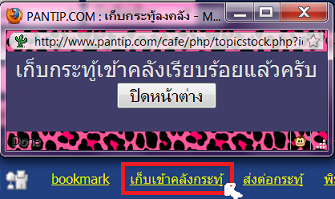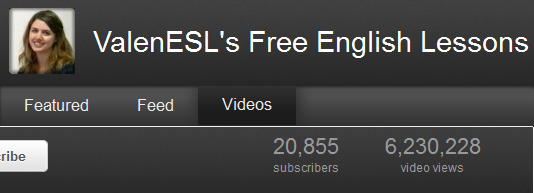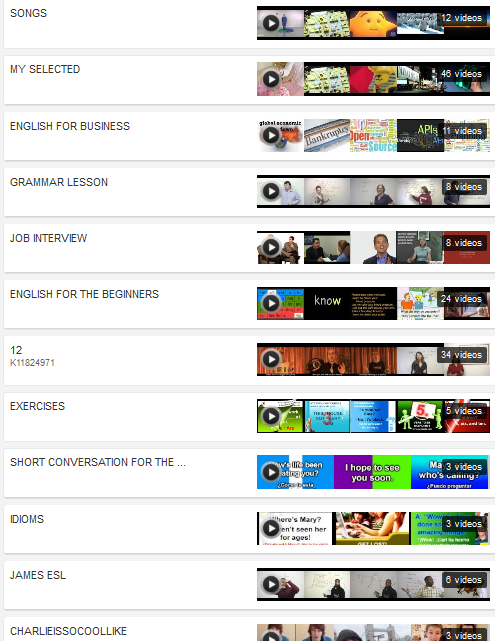 |
LEARNING ENGLISH
เรียนภาษาอังกฤษ
WITH
กับ
MISTERDUNCAN
มิสเตอร์ดันแคน
LESSON TWENTY SIX
บทที่ 26
 "You know the world of English คุณทราบไหม โลกของภาษาอังกฤษนั้น "You know the world of English คุณทราบไหม โลกของภาษาอังกฤษนั้น  is a fun and exciting place to be เป็นที่ที่สนุกสนานและน่าตื่นเต้น is a fun and exciting place to be เป็นที่ที่สนุกสนานและน่าตื่นเต้น  I'm so glad that you could join me ผมแสนยินดี คุณได้ร่วมกับผม I'm so glad that you could join me ผมแสนยินดี คุณได้ร่วมกับผม  for another lesson" อีกบทหนึ่ง for another lesson" อีกบทหนึ่ง
     LEARNING ENGLISH เรียนภาษาอังกฤษ WITH กับ MISTERDUNCAN มิสเตอร์ดันแคน LESSON TWENTY SIX บทที่ 26 LEARNING ENGLISH เรียนภาษาอังกฤษ WITH กับ MISTERDUNCAN มิสเตอร์ดันแคน LESSON TWENTY SIX บทที่ 26
ON AND OFF
 Hi! Everybody... Hi! Everybody...
สวัสดีครับ! ทุกๆท่าน ...
 This is Misterduncan in This is Misterduncan in  England. England.
นี้คือ Misterduncan ในแดนอังกฤษ
 How are you today? How are you today?
คุณสบายดีมั๊ยครับวันนี้?
 Are you OK? ... I hope so! Are you OK? ... I hope so!
คุณสบายดีมั๊ย? ... ผมก็ว่างั้น!
 Are you happy? ... I hope so! Are you happy? ... I hope so!
คุณสุขสันต์ดีมั๊ย? ... ผมก็ว่างั้น!
 In this lesson, will examine two English words which are both short in length and in common use. In this lesson, will examine two English words which are both short in length and in common use.
ในบทนี้ จะอธิบาย 2 คำภาษาอังกฤษซึ่งทั้งคู่เป็นคำสั้นๆ และใช้กันอยู่ทั่วไป(ในชีวิตประจำวัน)
 The words are.. "ON" and "OFF". The words are.. "ON" and "OFF".
คำนี้คือ "ON" และ "OFF"
 One of the most fascinating aspects of the English language for me is how some words can have many different usages One of the most fascinating aspects of the English language for me is how some words can have many different usages
สิ่งที่เห็น ที่น่าสนใจมากที่สุดของภาษาอังกฤษอย่างหนึ่ง สำหรับผมคือ บางคำสามารถมีการใช้งานมากมายที่แตกต่างกันได้อย่างไร
 For our first example, let's look at the word...ON For our first example, let's look at the word...ON
สำหรับตัวอย่างแรกของเรา มาดูกันที่คำว่า "ON"
 Examples Examples
ตัวอย่างต่างๆนะครับ
 "I will see you ON Tuesday." "I will see you ON Tuesday."
ผมจะพบคุณในวันอังคาร
 In this sentence, the word "on" is used to show a precise or certain day when something will happen. In this sentence, the word "on" is used to show a precise or certain day when something will happen.
ในประโยคนี้ คำว่า "ON" ใช้เพื่อแสดงวันที่ชัดเจนหรือแน่นอน เมื่อบางอย่างจะเกิดขึ้น
 "The party is still ON." "The party is still ON."
งานเลี้ยงยังคงดำเนินอยู่
 In this sentence the word "on" means... In this sentence the word "on" means...
ในประโยคนี้ คำว่า "ON" หมายถึง...
 something will go ahead and happen as planned. something will go ahead and happen as planned.
บางอย่างจะดำเนินไปและเกิดขึ้นอย่างที่ได้วางแผนไว้
 "The ball was On target for the goal." "The ball was On target for the goal."
ลูกบอลอยู่ที่เป้า (ตรง)ตามเป้าหมาย
 In this sentence, the word "on" means correct or heading in a positive direction. In this sentence, the word "on" means correct or heading in a positive direction.
ในประโยคนี้ คำว่า "ON" หมายถึง ถูกทางหรือมุ่งหน้าไปยังทิศทางบวก
 "Are you still ON for the match tomorrow?" "Are you still ON for the match tomorrow?"
เธอยังคง จะไปนัดพรุ่งนี้มั๊ย?
 In this sentence, the word "on" is used to mean, In this sentence, the word "on" is used to mean,
ในประโยคนี้ คำว่า "ON" เคยหมายถึง
 are you still interested in doing it or going there? are you still interested in doing it or going there?
เธอยังคงสนใจทำมันหรือ(ยังคงสนใจ)ไปที่นั่นมั๊ย?
 "I left the light ON." "I left the light ON."
ชั้นเปิดไฟทิ้งไว้
 In this sentence, the word "on" means In this sentence, the word "on" means
ในประโยคนี้ คำว่า "ON" หมายถึง
 something is functioning or working something is functioning or working
บางอย่างที่การใช้งานหรือการทำงาน
 normally relating to a device which uses energy to operate... normally relating to a device which uses energy to operate...
ปกติแล้วเกี่ยวข้องกับเครื่องไม้เครื่องมือที่ใช้พลังงานเพื่อ(ให้มัน)ทำงาน
 for example, a TV or Radio or a Gas-Fire or Stove. for example, a TV or Radio or a Gas-Fire or Stove.
สำหรับตัวอย่าง, โทรทัศน์ หรือ วิทยุ หรือ Gas-Fire หรือ เตาทำอาหาร
 Now let's look at the word "off." Now let's look at the word "off."
ตอนนี้ มาดูกันที่คำว่า "OFF"
 Here are some examples of it's usage. Here are some examples of it's usage.
นี่เป็นบางตัวอย่างต่างๆของการใช้คำนี้
 "I'm OFF work next Monday." "I'm OFF work next Monday."
"ผมหยุดงานวันจันทร์หน้า"
 In this sentence, the word "off" means.. In this sentence, the word "off" means..
ในประโยคนี้ คำว่า "OFF" หมายความว่า..
 I do not need to do that or to be away. I do not need to do that or to be away.
ชั้นไม่จำเป็นต้องทำอย่างนั้น หรือ(จะ)จากไป
 "Yeah!...I'm OFF on my holiday soon." "Yeah!...I'm OFF on my holiday soon."
"เย้!...ชั้นไปตอนวันหยุดชั้น เร็วๆนี้หละ"
 In this sentence, the word "off" simply means going. In this sentence, the word "off" simply means going.
ในประโยคนี้ คำว่า "OFF" หมายความง่ายๆว่า กำลังไป..
 "I'm OFF my food at the moment." "I'm OFF my food at the moment."
"ชั้นไม่ทานอาหาร(ชั้น)ซักระยะนึง"
 In this sentence, "off" means... In this sentence, "off" means...
ในประโยคนี้ คำว่า "OFF" หมายความว่า..
 unable to do something or must avoid doing something. unable to do something or must avoid doing something.
ไม่สามารถทำบางอย่างได้หรือต้องเลี่ยงการทำบางอย่าง
 "Poooh, this Milk is OFF!" "Poooh, this Milk is OFF!"
"Poooh, นมนี่บูด(ทานไม่ได้)"
 In this sentence, the word "off" simply means inedible. In this sentence, the word "off" simply means inedible.
ในประโยคนี้ คำว่า "OFF" หมายความง่ายๆว่าทานไม่ได้
 It cannot be eaten or drunk. It is rotten. It cannot be eaten or drunk. It is rotten.
ทานหรือดื่มมันไม่ได้ มันเสีย(หมดอายุ)
 "Please turn OFF the light." "Please turn OFF the light."
กรุณาปิดไฟ
 In this sentence, word "off" means... In this sentence, word "off" means...
ในประโยคนี้ คำว่า "OFF" หมายถึง
 disconnect or cut-off the power supply to a device disconnect or cut-off the power supply to a device
ไม่เชื่อมต่อหรือตัดกระแสไฟของเครื่องมือ
 which uses energy to operate which uses energy to operate
ที่ใช้พลังงานในการทำงาน
 such as a Computer or a Microwave Oven. Or a light-bulb. such as a Computer or a Microwave Oven. Or a light-bulb.
เช่นคอมพิวเตอร์ หรือเตาไมโครเวฟ หรือหลอดไฟ
 When we take a closer look at common words When we take a closer look at common words
เมื่อเรามาดูคำต่างๆที่ใช้บ่อยอย่างใกล้ชิดขึ้น
 we find that they can be used in many different ways. we find that they can be used in many different ways.
เราพบว่า พวกเค้าสามารถถูกใช้ในหลายๆวิธีแตกต่างกัน
 Before I finish today I have a question for you. Before I finish today I have a question for you.
ก่อนผมจะจบวันนี้ ผมมีคำถามสำหรับคุณครับ
 Do you know which English word has the most uses and definitions within a sentence? Do you know which English word has the most uses and definitions within a sentence?
คุณทราบมั๊ยครับว่าคำอังกฤษคำไหนที่ใช้มากที่สุดและมีความหมาย(มากที่สุด) เมื่ออยู่ในประโยค?
 Do you think you know the answer? Really? Do you think you know the answer? Really?
คุณคิดว่าคุณทราบคำตอบมั๊ย? จริงอะ?
 Well, just in case you don't know. Well, just in case you don't know.
เอาหละ, เผื่อว่าคุณไม่ทราบ
 I will give you the answer at the start of my next lesson. I will give you the answer at the start of my next lesson.
ผมจะให้คำตอบคุณตอนเริ่มต้นของบทหน้านะครับ
 Sadly, it is time for me to say goodbye for now. Sadly, it is time for me to say goodbye for now.
อย่างเศร้าครับ มันเป็นเวลาของผมเพื่อกล่าวลาก่อน ณ ตอนนี้ครับ
 But before I go, I would like to say a special But before I go, I would like to say a special  "Hello!" "Hello!" to my new friends in... to my new friends in...
แต่ก่อนผมไป ผมอยากจะกล่าว "เฮลโหล!" ถึงเพื่อนใหม่ผมใน
 South Korea, South Korea,  Japan, Japan,  Germany, Germany,  The Czech Republic and The Czech Republic and  Mexico Mexico
เกาหลีใต้, ญี่ปุ่น, เยอรมันนี, สาธารณรัฐเชค และ เมกซิโก
 who have all recently started watching my lessons and following them. who have all recently started watching my lessons and following them.
ผู้เริ่มดูบทเรียนผมเมื่อเร็วๆนี้และดูมาเรื่อยๆ
 This is Misterduncan in This is Misterduncan in  England saying to the whole World...นี่คือ นายดันแคนในอดนอังกฤษ กล่าวกับโลกทั้งใบ... England saying to the whole World...นี่คือ นายดันแคนในอดนอังกฤษ กล่าวกับโลกทั้งใบ... Thanks for watching and remember ...ขอบคุณสำหรับการรับชมนะครับ และจำไว้ว่า ... Thanks for watching and remember ...ขอบคุณสำหรับการรับชมนะครับ และจำไว้ว่า ... Enjoy English ... because I do :-) สนุกกับภาษาอังกฤษนะครับ ... เพราะว่าผมทำ :-) Enjoy English ... because I do :-) สนุกกับภาษาอังกฤษนะครับ ... เพราะว่าผมทำ :-) Bye - bye for now!ลาก่อนสำหรับตอนนี้ครับ! Bye - bye for now!ลาก่อนสำหรับตอนนี้ครับ!
  
  
แก้ไขเมื่อ 19 มี.ค. 55 04:29:09
แก้ไขเมื่อ 19 มี.ค. 55 04:27:49
แก้ไขเมื่อ 19 มี.ค. 55 04:13:33
แก้ไขเมื่อ 19 มี.ค. 55 02:41:49
แก้ไขเมื่อ 16 มี.ค. 55 09:23:06
แก้ไขเมื่อ 15 มี.ค. 55 14:46:28
| จากคุณ |
:
lovelypriest   
|
| เขียนเมื่อ |
:
13 มี.ค. 55 00:44:33
|
|
|
|
 |

 สวัสดีจ้ะ
สวัสดีจ้ะ




 อ่านย้อนหลัง
อ่านย้อนหลัง เพลย์ลิสต์ในยูทูป
เพลย์ลิสต์ในยูทูป









 This is Misterduncan in
This is Misterduncan in  England.
England. Are you happy?
Are you happy?  of
of  of
of 



 Even the English language has its
Even the English language has its However it is
However it is and
and  when we use
when we use  Let's look at
Let's look at and the way it is spoken.
and the way it is spoken.








 "I'm going out tonight" =>
"I'm going out tonight" =>  "I've got to get home soon" =>
"I've got to get home soon" =>  "You are not coming to my party" =>
"You are not coming to my party" =>  "You don't know me" =>
"You don't know me" =>  "I want to see you later" =>
"I want to see you later" =>  Often these changes are due to
Often these changes are due to  and sometimes they are
and sometimes they are the rules of English are quite
the rules of English are quite and clauses in
and clauses in 


 With the growth in
With the growth in
 The speed
The speed "For'' becomes
"For'' becomes  " dinner" becomes
" dinner" becomes  So we can now
So we can now  "Could I see you tonight for dinner at 7?"
"Could I see you tonight for dinner at 7?"
 I hope you
I hope you  This is Misterduncan in England saying
This is Misterduncan in England saying  And I hope you can
And I hope you can are
are  when it comes to
when it comes to The first thing you need
The first thing you need  So
So  It may seem like
It may seem like  If you
If you  and your confidence will
and your confidence will  You will be able to
You will be able to One common problem
One common problem  Once you feel confident
Once you feel confident This will allow you
This will allow you 
 Or type it out,
Or type it out, and sl:-) learn it...
and sl:-) learn it...
 If you feel tired..
If you feel tired..  Finally
Finally


 ์ "It's
์ "It's  Speaking
Speaking 
 Brazil
Brazil Italy.
Italy. for example, a TV or Radio or a Gas-Fire or Stove.
for example, a TV or Radio or a Gas-Fire or Stove. In this sentence, "off" means...
In this sentence, "off" means... we find that
we find that  Before I finish today
Before I finish today South Korea,
South Korea,
 Germany,
Germany,  The Czech Republic
The Czech Republic
 Put on the map = to make known = ทำให้เป็นที่รู้จักกว้างขวาง
Put on the map = to make known = ทำให้เป็นที่รู้จักกว้างขวาง
 เราไม่ใช้ว่า
เราไม่ใช้ว่า คุณถูกใช่มั๊ยคะ คุณมาถูกทางแล้วค่ะ(คุณเข้าใจวิธีใช้ถูกต้องแล้วค่ะ) ก็ทำต่อไปนะคะ(พยายามเข้าใจอย่างนี้ต่อไปและทำแบบฝึกหัดต่อไปนะคะ)
คุณถูกใช่มั๊ยคะ คุณมาถูกทางแล้วค่ะ(คุณเข้าใจวิธีใช้ถูกต้องแล้วค่ะ) ก็ทำต่อไปนะคะ(พยายามเข้าใจอย่างนี้ต่อไปและทำแบบฝึกหัดต่อไปนะคะ)
 เอาละค่ะ คุณพร้อมสำหรับแบบฝึกหัดเล็กๆน้อยๆ หรืออะไรที่ให้ไปเตรียมมามั๊ยคะ โอเคค่ะ เขียนลงนะคะ
เอาละค่ะ คุณพร้อมสำหรับแบบฝึกหัดเล็กๆน้อยๆ หรืออะไรที่ให้ไปเตรียมมามั๊ยคะ โอเคค่ะ เขียนลงนะคะ


 ดังนั้น
ดังนั้น แล้วเราจะ apply(เอาไปประยุกต์ใช้) ให้ได้คล่องๆ ได้ยังไง
แล้วเราจะ apply(เอาไปประยุกต์ใช้) ให้ได้คล่องๆ ได้ยังไง





